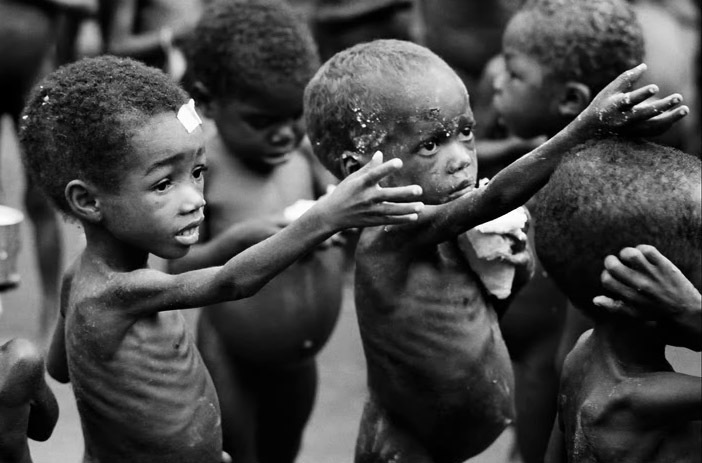This article comes from The Peace and Conflict Review, a publication hosted at the headquarters of the United Nations mandated University for Peace (UPEACE) in San Jose, Costa Rica.
Contri looks at the ways in which the wealthy (affluent) experience guilt and anxiety when confronted with extreme poverty, a condition that creates "defensive distortions" that appear to be (but aren't) "rational arguments against donating generously to the extreme poor." The solution to this problem, according to Contri, is to get the affluent more in touch with their empathy.
In essence, he argues that the affluent are not bad people (hence they do not donate more to help those most in need), but rather they are conflicted with guilt and anxiety, feelings that distance them from their empathy. Rather than condemn them, thereby creating more anxiety and guilt, we should assist them in accessing their empathy. Unfortunately, he offers little insight into how we might do this.
~ Doug Contri earned his doctorate in clinical psychology from Widener University’s Institute for Graduate Clinical Psychology. Since 1996 he has worked for the Federal Bureau of Prisons in the United States, providing psychological services to inmates, and has coordinated comprehensive drug, alcohol and criminal rehabilitation programs.
Full Citation:
Contri, D. (2012). Empathy and barriers to altruism. The Peace and Conflict Review; Vol 6, Issue 1; ISSN: 1659-3995
Doug ContriConcerned people respond generously to local human needs, while the needs of the extreme poor are neglected. The affluent do not contribute more due to poorly managed empathy rather than indifference. Specifically, the plight of the poor arouses anxiety and guilt among the affluent, who deploy cognitive distortions that protect them from these uncomfortable emotions. These defensive distortions masquerade as rational arguments against donating generously to the extreme poor. The guilt and anxiety of the affluent can be diminished by connecting them with their empathy rather than defending against it. This will relieve the affluent of these psychological burdens and likely increase aid to the extreme poor.
Contri makes extensive use of cognitive theory in this piece, through which he explains, in part at least, how people might arrive at what appears from the outside to be indifference.
Quoted below is one section of the article that I find highly relevant. In this section, he mentions a series of abbreviations for ideas previously discussed, called "barrier attitudes," that prevent people from offering charity to those in need - here is a list of those five attitudes:
- Magnitude View (MV), asserts the problems of the developing world are hopeless
- You Can’t Help Them All (YCHA), asserts that even were one to successfully help someone, there still remain a seemingly endless number of others needing help
- Help at Home First (HHF), asserts that we should help others in our own communities before looking beyond our borders
- Responsibility Position (RP), asserts that it is the responsibility of the people in developing societies to solve their own problems
- Responsibility Position (RP), asserts that it is the responsibility of the people in developing societies to solve their own problems
Analysis of empathy revealed its many effects, to include love, community, anxiety and guilt. Armed with this understanding, barrier attitudes were examined and found to contain thinking errors commonly found among criminals, errors whose chief purpose is to reduce anxiety and guilt, and which appear to be the explanation for these logically implausible postures. Barrier attitudes are one method for resolving the tension created by empathy. They allow for empathy’s positive effects of love and community while reducing its liabilities of anxiety and guilt.Thus, the lack of ameliorative action towards the extreme poor, when expressed by the attitudes noted above, appears to be due NOT to indifference. On the contrary, it appears to be a reaction to empathy, caring if you will, a way to protect against the suffering compassion inevitably produces. So conceived, the barrier attitudes examined (MV, YCHA, HAHF, RP, LC) are a solution to an internal conflict for those who hold them; they are suffering in response to their empathy for others. While barrier attitudes are one method for resolving the tension created by empathy, these defensive cognitive distortions are not precise surgical instruments; rather they are blunt in their effects, such that their attenuation of anxiety and guilt also risks reducing connection to others generally rather than specifically. Stated plainly, though defensive cognitive processes reduce our dysphoria, they also reduce our connectedness, which is a principle foundation for happiness. They have side-effects; they are not free. For most of us there is a better solution to empathy’s conundrum.
Rather than deploying defensive cognitive distortions, most of us would be better off embracing our empathy in all of its ramifications. Of course, fully embracing empathy carries risks. However, it also carries enormous benefits. Recall that empathy is the basis for love and community, and that its expansion carries the possibility of deepening these experiences. Often, exposure to the extreme poor, and others in need, gives rise to greater connection and satisfaction than would have otherwise been attained.

1 comment:
May I suggest a further resource to learn more about empathy and compassion.
The Center for Building a Culture of Empathy
The Culture of Empathy website is the largest internet portal for resources and information about the values of empathy and compassion. It contains articles, conferences, definitions, experts, history, interviews, videos, science and much more about empathy and compassion.
CultureOfEmpathy.com
Post a Comment